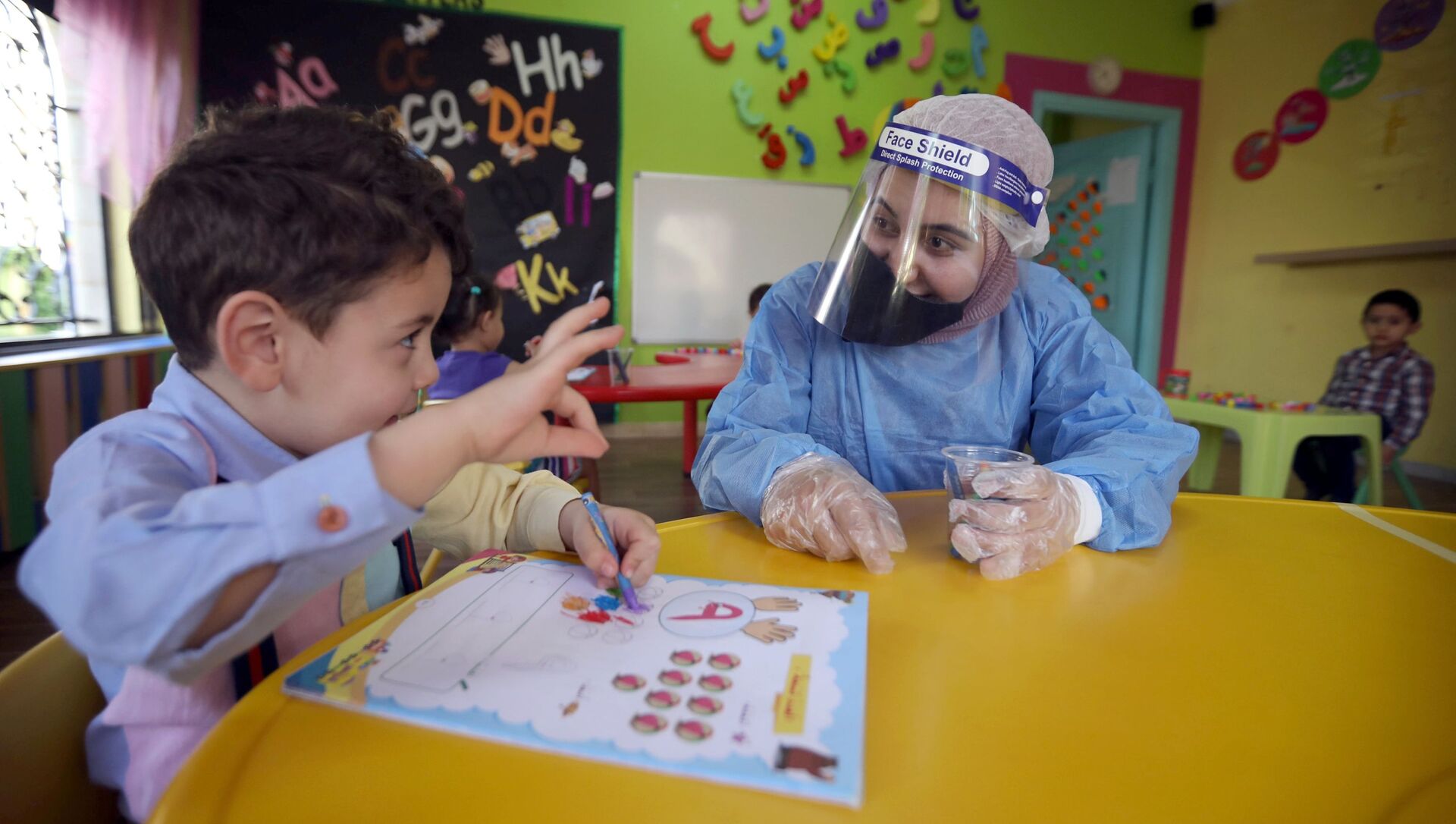Very young children may well have "low rates of infection" of SARS-CoV-2 (COVID-19), according to a peer-reviewed French study recently published in the medical journal The Lancet Child & Adolescent Health (LCAH).
Researchers examined the presence of COVID-19 antibodies in the blood stream, known as seroprevalence. According to the French study, COVID-19 infection rates among the young children observed and tested at 22 daycare centres "was low", at 3.7 percent.
"Our results suggest that young children are more likely to contract COVID-19 at home, rather than at a daycare centre", says Dr Camille Aupiais of Hôpital Jean-Verdier and lead author of the report.
The observational study looked at 327 children between five months to a little over four years old during the first lockdown in France from June to July 2020. The children's test results were compared to those of 164 adults, aged 42 years old on average, made up of office and lab workers, "from six hospitals who kept working during the lockdown and were not occupationally exposed to very young children or COVID-19 patients in their work setting", the LCAH says. They add that blood samples were taken to test for the presence of antibodies, "using finger pricks" for the children, that were then "tested using a rapid lateral flow test to detect SARS-CoV-2 antibodies".
SARS-CoV-2 transmission among children and staff in daycare centres during a nationwide lockdown in France: a cross-sectional, multicentre, seroprevalence study - The Lancet Child & Adolescent Health https://t.co/p01LO0d8eu
— Mariela García (@DraMarielaG) February 9, 2021
During the observational study, French daycare centres were advised to ensure key health measures were implemented, such as reducing groups of children to between six and eight, cleaning surfaces with disinfectant, as well as using face masks and observing social distancing by staff. On top of this, parents weren't allowed to enter daycare centres and were told to screen their children for COVID-19 symptoms. If a child presented symptoms, they weren't permitted into daycare centres, the study says.
In total, 14 children and 14 daycare staff were shown to be "seropositive" across 13 daycare centres. "In the centre with two seropositive cases, the children had attended separate zones of the daycare centre with no mixing, suggesting that there was no child-child transmission in these cases", the summary written by LCAH says. The comparator group of office and lab worker adults showed around a five percent infection rate.
"We suggest that clinical signs of COVID-19 are not the best indicators of infection or for testing very young children and that the main criterion should be a suspected or confirmed case in an adult household member. Further research is needed to fully understand the role of young children in community transmission", Dr Aupiais said.
The authors stress that there are limitations to the study. The children observed were in smaller than normal class sizes and so may not translate into similar results outside of a lockdown. Furthermore, it is not clear whether children would be differently impacted by the "newer" UK, Brazilian, and South African strains of the virus that have since emerged. Therefore authors call for study, especially on the newer variants of COVID-19, before it can be determined how future policy may be impacted.


